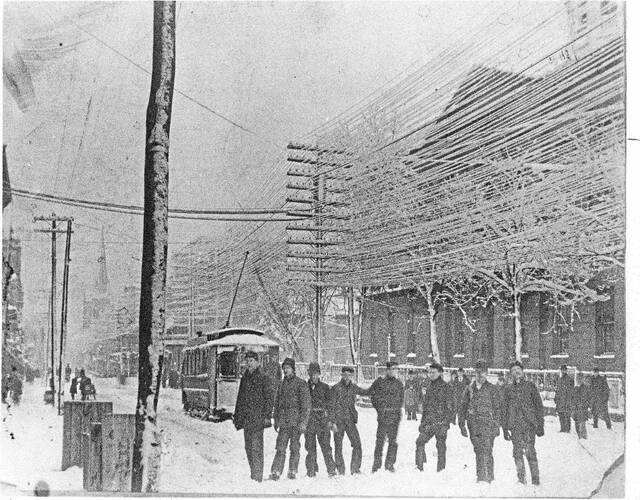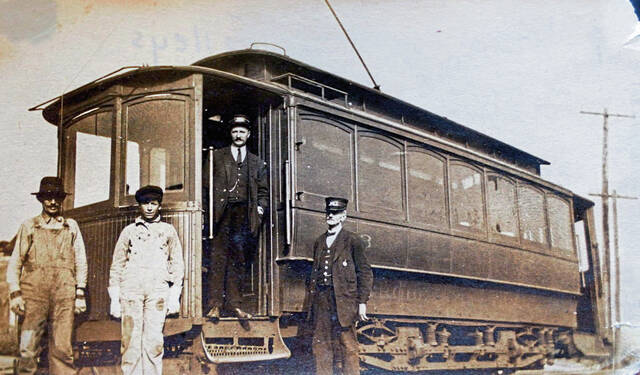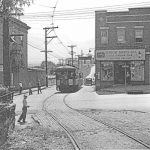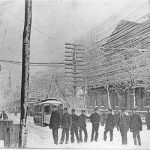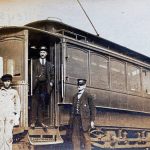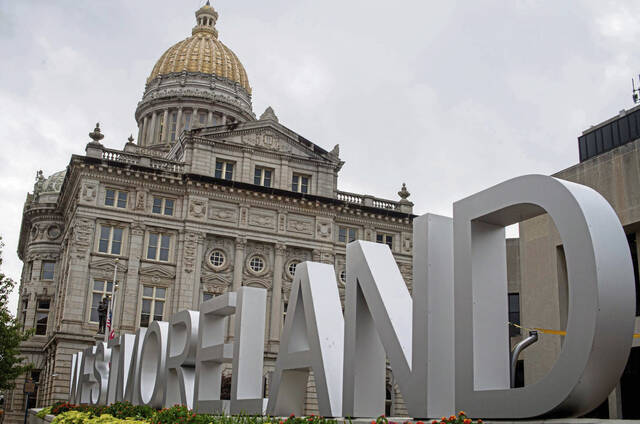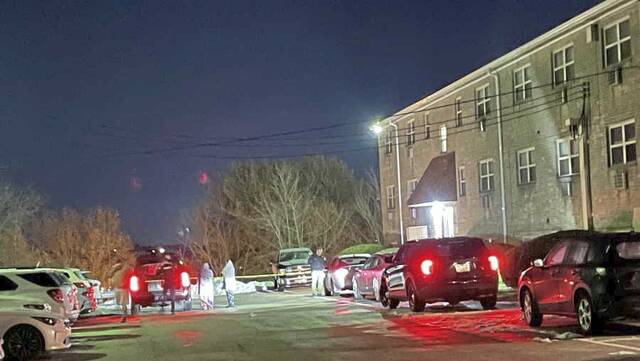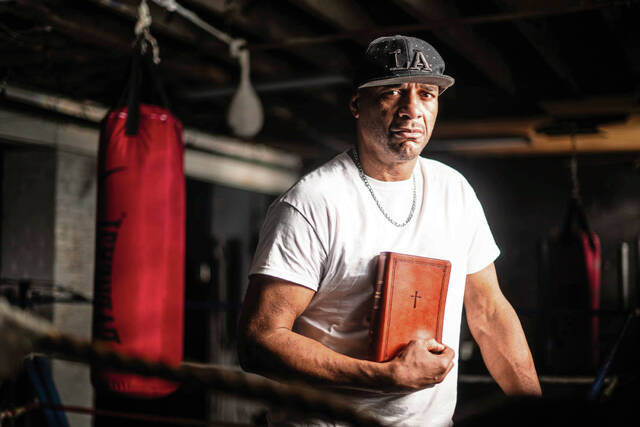When Jean Loughrey thinks of the trolley lines that once connected towns within Westmoreland County, it doesn’t take long for her to recall some “very good memories.”
Loughrey, 92, of Delmont said she used to take the trolley from a station in Jeannette to Greensburg, where she took classes at what was then Seton Hill College.
“When I was still in high school, which was about 1946, I rode the trolley,” she said. “My dad would take me to Jeannette from Harrison City, where we lived, and I would get on a trolley and ride it up to Greensburg, and I got off at Seton Hill. I walked up the hill … and I took three or four different classes in dressmaking, pattern design and things like that.”
As a child, Loughrey also would take the 87 Ardmore trolley from Turtle Creek to downtown Pittsburgh, “one of the treats” of visiting her grandmother for a week each year.
Loughrey was one of almost 100 people who attended the Westmoreland Historical Society’s “Remember When — Trollies Rolled Through Westmoreland County” event Sunday afternoon at Greensburg Country Club. The event allowed people like Loughrey to recall fond memories while teaching others about Westmoreland County’s storied trolly history.
The event largely focused on trolley lines starting in 1917 — when 13 trolley companies merged under the West Penn Railways Co. moniker — although several lines operated as seperate entities up until that point. The merger allowed those local lines, along with others in outlying communities, to become part of a regional system.
That system was organized into three operating territories with about 340 miles of track. The lines largely connected towns such as Greensburg, Connellsville and Uniontown, according to the Pennsylvania Trolley Museum in Washington County. They also connected a multitude of coal patch towns that were scattered across the region.
The main West Penn route connected Greensburg and Uniontown over more than 30 miles of track, a trip that initially took nearly 2½ hours to complete.
At their peak, the trolley lines were used to transport people to school and work, as well as to larger towns where downtown areas bustled with shoppers, said Dennis Cramer of the Pennsylvania Trolley Museum, who presented at the event.
People also used streetcars to visit family and to travel to various parks on the weekend.
During the event, local historian Glenn Smeltzer took attendees on a figurative trip on the trolley, starting with a line connecting Greensburg, Jeannette, Manor and Irwin. Through photos and personal stories, Smeltzer took attendees along for the ride, showing lines meandering through towns and the journey in between.
At one point, Smeltzer rang what is believed to be a trolley bell to signify a line that ran past the Greensburg Country Club.
West Penn Railways ceased to exist in 1952. Cramer attributed its demise to the loss of coal jobs and the growth of the automobile industry.
Several attendees were excited to learn the history of the trolley lines that were once the most prominent mode of transportation.
“The trolleys themselves, when I was growing up, we did a lot of our shopping in Latrobe, and I can remember the trolley tracks and no trolleys so I thought, well, now, I can maybe put it together,” said Jeffrey Tenerovich, 72, of New Alexandria.
Sitting next to Loughrey, Bonnie Ramus, 73, of Harrison City said she was interested in learning about the different routes and how streetcars were built.
Doug Plance, 65, of Murrysville said he knew very little about the history of trollies. He cited the importance of keeping history alive and passing it down to the next generation.
Thomas Klingensmith, 67, of New Kensington agreed.
“I belong to the historical society, and I’m interested in all kinds of history, but I never knew anything about trolleys. … I remember when there were some, but I didn’t know much about it so I was interested in learning about the trolley system,” Klingensmith said.
He added: “A lot of history is lost. People don’t know about these sort of things, and I think we should know our history.”



